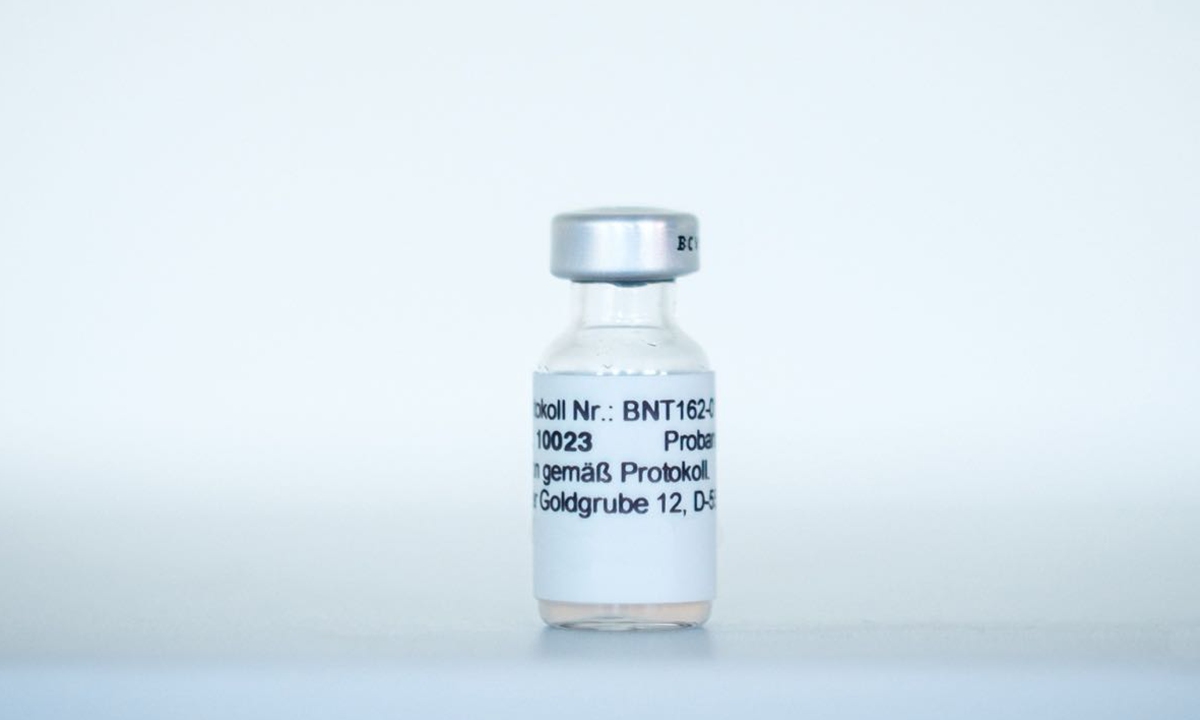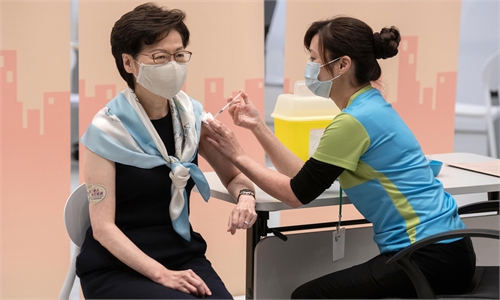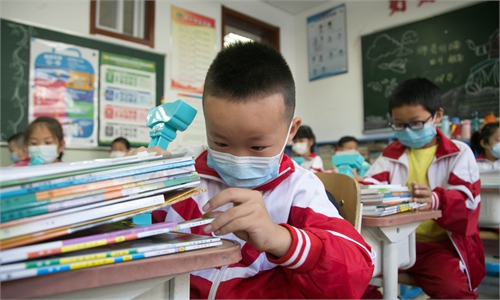Defective packaging ‘very unlikely’ to affect safety, efficacy after HK, Macao suspends BioNTech vaccine

The COVID19 vaccine BNT162b2 co-developed by Fosun Pharma and BioNTech Photo: Courtesy of BioNTech
China's Hong Kong and Macao special administrative regions (SARs) announced that they were suspending inoculations with the COVID-19 mRNA vaccines co-produced by Germany's BioNTech and China's Fosun Pharma from Wednesday as a precaution, after the packaging of a batch of doses was found to be defective.
The SAR governments stressed that the suspension was a precautionary measure aimed at ensuring the safety of vaccinations.
A Chinese vaccine expert said that the defective packaging is "very unlikely" to have an impact on the safety and efficacy of the vaccine under the cold-chain environment.
The two SAR governments announced on Wednesday morning on their official news websites that they had received a written notice from Fosun Pharma, saying that a batch of the vaccine bottles had defective caps, and BioNTech and Fosun Pharma had launched an investigation.
Chan Hon-yee, director of Hong Kong's Department of Health, said at a press conference on Wednesday that the doses with defective packaging were found mainly with their bottle caps loose or crooked. Therefore, as the pressure inside the vaccine vial is high, the liquid leaked out when saline solution was injected into the bottle to dilute the vaccine, Chan said.
Chan noted that the authority had abandoned the doses when it discovered the problem, and it did not use any of the vaccine doses to inoculate residents.
Front-line medical personnel have reported cracks in the packaging and loose bottle caps, so the government reported the incidents to Fosun Pharma, requesting the developer to launch an investigation.
Chan added that the authority has the vaccination records and it can track those who have been vaccinated, if necessary.
As a precaution, both the Hong Kong and Macao SAR governments requested all community vaccination centers to suspend use of the mRNA vaccine.
People who made appointments for vaccination with these doses from Wednesday and thereafter do not need to turn up for them.
Hong Kong Secretary for Food and Health Sophia Chan Siu-chee said on Wednesday that residents who have already received their first doses of this vaccine don't have any safety risk, noting that the authority has followed rigorous procedures for examining, transporting, diluting and storing vaccines.
The developers said they found no safety risks in the vaccine from batch number 210202, which is valid until June.
Another batch of the vaccine, No.210204, in Hong Kong will be sealed and temporarily withheld from being administered.
The Hong Kong SAR government said about 150,000 doses of the mRNA vaccine co-developed by BioNTech and Fosun Pharma have been administered, all of which were among the first batch to arrive in Hong Kong.
BioNTech and Fosun Pharma have initiated an investigation into the cause of the faulty packaging, media reports cited a statement by Fosun Pharma as saying.
Chan stressed that there is no causal link between the deaths after vaccination and vaccines, and there is no evidence to question the safety of the approved vaccines.
She noted that the government and medical experts are discussing whether to ease the social distancing regulations after vaccination.
Ann Chiang Lai-wan, a Legislative Council member of the Hong Kong SAR, expressed concern about whether the defective packaging would affect the stability of the vaccine.
Tao Lina, a Shanghai-based vaccine expert, told the Global Times on Wednesday that as the developers have not disclosed the specific flaws, it is difficult to say if there will be an impact on the vaccine's safety and effectiveness.
Tao said that normally, improper sealing can lead to bacterial contamination.
The defective packaging, in theory, could affect vaccines' stability and efficacy, but under the cold-chain environment, bacteria cannot reproduce, so in practice the defects are "very unlikely" to have an impact on these doses, Tao stressed.



